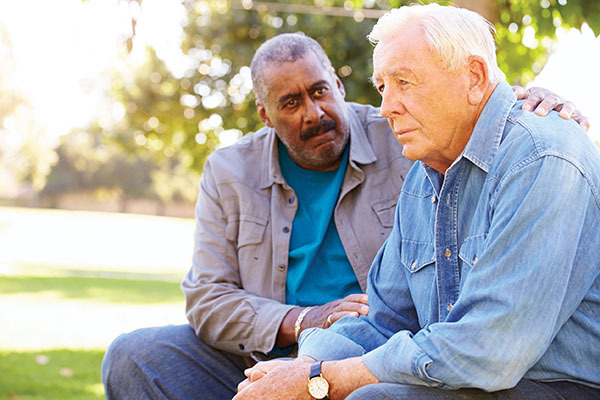Take Control of the Cancer Conversation
What to Do When Someone Says Something Foolish, Insensitive, or Offensive about Your Cancer Diagnosis
by Judith T. Krauthamer
As cancer survivors, we’ve all had at least one “bad” conversation. One in which we reveal our cancer diagnosis and receive:
• False empathy: “I know someone who died from that”;
• Unsolicited health advice: “Drink green tea and meditate”;
• Unwarranted life coaching: “Quit your job and travel while you have the chance”;
• Camouflaged judgment: “You shouldn’t have eaten so much red meat”; or
• Veiled distancing: “I am sure you can handle it.”
It’s no wonder these “bad” conversations leave us feeling diminished and alone.
Bad conversations happen regardless of our cancer type or stage. They happen with coworkers, friends and family members, people we know superficially, and people close to us. The issues that drive their responses – ignorance, fear, lack of empathy – are beyond our control. However, what we can control is how we protect ourselves when the conversation goes from start to bad.
When you tell me about someone you know, it diminishes my experience, which is unique, separate, and personal. It also equates their outcome with mine.
Protecting ourselves requires practice in how we respond internally – giving self-care and self-compassion – and how we respond externally – taking literal control of the conversation. We can externally take back or redirect bad conversations by making a bold statement. We can speak aloud what we heard and then explain what we need to hear instead. Here are some suggestions for responses that force such a shift in the conversation:
• When you tell me how to navigate my healthcare, you are not talking to me. You are simply saying aloud your own opinions on how the world should work. Instead, ask me if I am comfortable with treatment and if there is anything you can do to support it.
• When you tell me about someone you know, it diminishes my experience, which is unique, separate, and personal. It also equates their outcome with mine. It is an unnecessary reminder of outcomes that might be frightening or may be impossible to attain. If you must compare me, simply share what you admired about that person. Add light, not darkness.
• When you tell me I look great, I know that you mean well, because cancer’s stigma looks thin, weak, and bald. Please be aware that cancer is mostly an invisible disease. My looks do not increase my feelings of confidence or connectedness. Instead, tell me you are grateful that I am here talking with you and then ask me how I am feeling.
• When you tell me how sad/bad/uncomfortable my diagnosis makes you feel, please remember that this is not about you; it is about me. Sharing your unhappiness only serves to add remorse and guilt to my list of emotions that are already confusing and difficult to navigate. Tell me that you are sad that I have challenges ahead and that you will support any decisions I might make.
• When you say to me, “You can handle it,” you are denying my fears and implying that I am alone in this journey. If you are unavailable to be with me as I travel this cancer road, that’s perfectly fine. Be honest with me and simply wish me well.
• When you say to me, “Everybody dies,” you are not telling me something I don’t already know. I think about death a lot more than you do, I’m sure. Instead, tell me you admire my openness and bravery in facing something that most people are too afraid to look at – their own mortality.
Being upfront and honest in real time is not easy. Like cancer, relationships are complicated. Even under the best health circumstances, being forthright is a rare trait. Yet speaking our truth is the most self-empowering thing we can do. It allows us to differentiate friend from foe without feeling like a victim.
With practice, it gets easier and easier to clarify what we need and to demand the respect we deserve. We may not be able to change another person, but we can certainly prevent them from doing us harm. We can take control of the cancer conversation – on any stage and at any stage.

Judith Krauthamer, a lung cancer survivor, is the author of Sound-Rage and a contributing writer to The Mighty and The Cure. She is also a certified life and career coach (QuietspaceCoaching.com).
This article was published in Coping® with Cancer magazine, November/December 2018.


